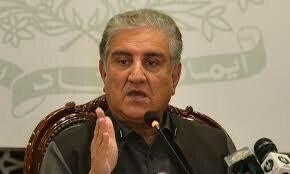Today, people from several parts of Punjab will go to the polls to elect local councillors in what is merely the first part of a multi-tiered – and mostly indirect – electoral exercise. In this special report, Dawn examines the Punjab Local Govt Act 2013 and maps out the processes that will bring a new set of political representatives to power. Comparisons have also been made between the scale of devolution carried out under this law and previous regimes to understand how much power will actually remain in the hands of the people’s newly-elected representatives.
RAWALPINDI/CHAKWAL: Sardar Ghulam Abbas’ eight-year stint as the Chakwal zila nazim, or district mayor, is considered “an era of development and prosperity” by many.
Between 2001 and 2008, new colleges, roads and small dams were established and streets in remote villages were constructed.
This happened, Abbas’ supporters claim, because of the administrative and financial powers given under the Punjab Local Government Ordinance, introduced by then-president Pervez Musharraf.
Nearly a decade later, the local bodies system has been revived, with the Punjab Local Bodies Act 2013.
But the law continues to attract criticism and comparisons with the Musharraf era, because rather than actually devolving power, it appears to maintain the status quo.

Under the current act, the rural areas will get a two tier system; a union council and district council, while urban areas (except Lahore) would get a union council and, either a municipal committee or a municipal corporation, depending on the size of the city. The all-important tehsil tier, introduced in the 2001 act, has been left out of the 2013 act.
Under the current act, local bodies functions would be directly managed by the provincial bureaucracy, a far cry from the devolution introduced through the 2001 ordinance.
“The act does not give any concrete powers to the elected chairmen from union councils, municipal committees and district councils. Even the mayors of metropolitan corporations appear to be powerless as the act avoids terms such as the “power of chairman or mayor”, states Tahir Mehdi, who works with Punjab Lok Sujag.
“Despite the revival of the system, the provincial bureaucracy will still be calling the shots and the elected heads of local bodies would have very little to do,” he quipped.
Mr Mehdi adds that under the 2013 act, a chief officer would be appointed in every district, who would be the de-facto head of the local bodies rather than the district council chairman or the mayor of the Metropolitan Corporation.
“The chief officer, who will be a bureaucrat, will be more powerful than the mayor and the chairman. Elected representatives will not be able to touch matters such as health, education and agriculture because separate bodies have been set up to deal with these subjects. These bodies will be headed by the Punjab government officers,” he says.
Any complaint against these authorities would have to be registered through the deputy commissioner, who is also a senior bureaucrat.
Others point out that the Punjab government seems to have paid special attention to cities where it most fears a challenge from the PTI. Before the local government law was passed by the provincial assembly, it established municipal waste companies and cattle markets in big cities such as Lahore, Rawalpindi, Faisalabad and Multan. These will also be run by people appointed by the provincial government.
In the words of Amir Butt from Chakwal Bar Association, the 2013 act is “worse than the 1979 act of Zia ul Haq”.
“The chairman of a district council is supposed to be like the chief minister of that area, but the current act ensures he is rendered powerless.”
“In the past, we would deal with revenue, finance, transport, health and education, but now a person of a mayor’s stature will merely be removing encroachments and approving building plans,” said Raja Tariq Kiyani, a former Rawalpindi district nazim.
The new local government system, argues former nazim and opposition leader Imran Hayat, “is nothing more than a revival of Takht-i-Lahore”. Mr Hayat, who was a councillor (in 1998) and nazim (in 2001 and 2005) argues that local bodies had more powers in the past. “In 1998, we managed education, health, sanitation among other things. In 2001 and later, we managed finances as well as the police. But now we will only take care of encroachments and building plans?”
He points out that while the mayor will be the one approving development schemes, these will have to be vetted by local MPAs and the commissioner has power to change his decisions.
Under the current act, the ‘Punjab Finance Commission’ will manage the financial matters of local bodies. This body will be headed by the provincial finance minister and hardly has any representation from the local government tiers.
“Another major fault of the 2013 act is depriving the general members of union councils of the right of franchise. They are barred from voting for the chairman of the district council and the mayor of the metropolitan corporation; chairmen and mayors will only be elected by the UC and municipal committee chairmen,” says Advocate Amir Butt.

Published in Dawn, November 19th, 2015













































